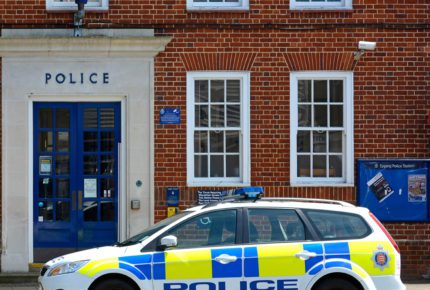
Terrorism offences are some of the most serious offences under the law of England and Wales and carry lengthy jail sentences. Terrorism legislation has created a multitude of crimes which relate not only to the commission or threat to commit violence acts, but also to activities such as preparation, fundraising, weapons training, belonging to and supporting terrorist organisations, possessing of certain items for terrorist purposes, and the dissemination of terrorist publications. These laws give the police wide powers to crack down on terrorist activities; however there is also the risk that they can be misused in cases where the evidence is weak.
Terrorism laws are used not only against those suspected of Islamist threat, but also those belonging to other banned groups such as far right violent extremist groups. The law of conspiracy means that you can be charged with a plan to carry out a terrorist offence, even if you did not commit the offence itself, and for one or more reasons the commission of the offence would have been impossible in any event. If you have been accused of a terrorism offence, read on to gain an overview of the complex criminal laws which are at play, and the sentence that you could face if you are found guilty.
What is the criminal offence of terrorism?
The law of England and Wales provides for a wide variety of different offences that fall under the category of terrorism. The Terrorism Act 2000 defines terrorism as:
The use or threat of serious violence against a person; serious damage to property; creating a serious risk to the health or safety of the public or a section of the public; or an action designed to seriously interfere with or disrupt an electronic system, which is designed to intimidate the public or influence a government or non-governmental organisation.
It goes further and stipulates that, ‘the act must be motivated by the goal of advancing a political, religious, racial or ideological cause.’
Where the perpetrator uses firearms or explosives, they can be convicted of terrorism even if there is no proof of the intention to intimidate the public or influence the government or an NGO.
The Terrorism Act covers offences committed abroad, as well as those which are committed within the UK.
What is a conspiracy in law?
Put simply, a conspiracy is an agreement with another person to commit a criminal offence. You can commit the offence of conspiracy regardless of whether the offence that you are accused of planning actually takes place.
Most offences of conspiracy are prosecuted under Section 1 of the Criminal Law Act 1977 (CLA). This provision sets out that a conspiracy charge can be brought in relation to any statutory criminal offence. This includes terrorism offences.
The elements of conspiracy are as follows. There must be:
- an agreement with another person or people
- to pursue a course of conduct, and
- the course of conduct involves the commission of a criminal offence. Or, the course of conduct would have amounted to the commission of an offence, but for the existence of facts which make the commission of an offence impossible.
For example, say you make a plan with your friend A to blow up the number 47 bus using an explosive device on Monday, 11 October 2021. This would amount to a conspiracy. Even if the number 47 bus was not running that day because of a Transport for London bus drivers’ strike, you and A could still be convicted of conspiracy to commit a terrorism offence.
Not all agreements to commit a criminal offence amount to a conspiracy. If you made the agreement with your spouse, or with a child under the age of criminal responsibility (10 years old), the law says it cannot be a conspiracy, unless there was also someone else involved who was not a child aged under 10 or your spouse.
What happens if you commit a terrorism offence?
Suspected terrorists have the same rights to due process and equality before the law as all other criminal suspects. That said, there are certain differences to the way in which the police are permitted to deal with suspected terrorists.
Firstly, Section 41(1) of the Terrorism Act 2000 allows a police officer to arrest anyone whom they reasonably suspect of being a terrorist. This is similar to the threshold for a normal arrest, where the officer must have reasonable suspicion that the person has committed/is committing/will commit an offence. The difference with terrorism offences is that often the police’s evidence will be based on intelligence rather than hard evidence. This can mean that the decision to arrest and detain is based on tip-offs which could be vulnerable to inaccuracies.
Secondly, the maximum pre-charge custody time limits are longer for terrorism offences. For normal accused criminal offenders, the maximum period of pre-charge detention is 72 hours, where a warrant for continued detention has been obtained from the Magistrates’ Court. By contrast, the maximum period of pre-charge detention for terrorism offences is 28 days. This might seem shockingly long, but it is a lot shorter than what was initially proposed by the government, that initially suggested a 90 day pre-charge custody time limit for terrorism suspects.
The CPS and police have specialist counter-terrorism units that deal with terrorism offences. These units have extra training and work with intelligence partners such as MI5 and MI6 to obtain information in respect of suspected terrorists.
Examples of conspiracy to commit terrorism offences
- A former member of the British armed forces communicates with a member of a terrorism group, planning a terrorism offence against serving members of the British military
- Three individuals make a plan to purchase a list of items to be used for the making of hand grenades
- A group of secondary school students become involved with extremist right wing ideology that supports white supremacist views. They make plans to carry out a terrorism offence at their school.
What is the sentence for conspiracy to commit a terrorism offence?
The sentence that you could receive if you are convicted of conspiracy to commit a terrorism offence depends on the sentencing guidelines for each of the relevant offences. The maximum sentence for statutory conspiracy is the same as the maximum sentence for the offence itself. The following table explains the maximum offences for common terrorist offences.
| Offence | Maximum Sentence | Where will my case be heard? | Sentence range |
| Preparation of Terrorist Acts
(Terrorism Act 2006 Section 5) |
Life imprisonment
|
Crown Court
|
3 years’ custody – Life Imprisonment
Where the criteria for serious terrorism applies a minimum custodial sentence of 14 years must be given unless exceptional circumstances apply |
| Terrorism offences relating to explosive substances likely to endanger life or property | |||
| Encouragement of terrorism/dissemination of terrorist publications | 7 years’ custody
Or 15 years’ custody where the offence has been committed on or after 12 April 2019 |
Triable either way | High level community order – 6 years’ custody |
| Proscribed organisations: membership | 10 years’ custody
Or 14 years’ custody where the offence has been committed on or after 29 June 2021 |
Triable either way | High level community order – 9 years’ custody |
| Proscribed organisations: support | |||
| Funding terrorism: Fundraising/ Use and possession/ Funding arrangements/ Money laundering | 14 years’ custody | Triable either way | High level community order – 13 years’ custody |
| Failure to disclose information about acts of terrorism | 5 years’ custody | Triable either way | High level community order – 4 years 6 months’ custody |
| Possession for terrorist purposes | 15 years’ custody | Triable either way | 1-14 years’ custody |
| Collection of terrorist information | 10 years’ custody
Or 15 years’ custody if the offence was committed on or after 12 April 2019 |
Triable either way | High level community order – 9 years’ custody |
In order to arrive at the starting point for your sentence, the court will consider your culpability in the offence. This involves how significant your role was in the offence, and whether you led others to commit the offence.
For a conspiracy charge, the court would look at if you initiated and motivated the plan to move forwards, or if you were persuaded to be involved by a co-conspirator. The court will also consider the harm caused or that would have been caused if the offence had been carried out. This will provide your sentence starting point. From there, your sentence will be adjusted to take into account any aggravating or mitigating factors relevant to you.
Where to get further help?
If you have been accused of a terrorism offence, you are probably aware that if you are convicted you may be facing many years behind bars. However, the good news is that, like any other offence, before convicting you the jury must be convinced beyond reasonable doubt that you are guilty. Your choice of criminal defence solicitor could make or break your defence. At Stuart Miller Solicitors, we understand that police intelligence can be flawed. We will ask the right questions to help you achieve the best possible outcome. Contact us for a no obligation consultation today.

